If you’re like most people, you probably think of nuts as being high in calories, and therefore off-limits on a ketogenic diet. But what if I told you that eating certain types of nuts can actually help you lose weight and improve your health?
In this article, I’ll reveal the nutritional benefits of eating nuts and share the best nuts for keto. I have linked to various research papers from reputable scientific sources.
Table of Contents
The nutritional benefits of nuts
Nuts are a brilliant source of healthy fats and protein and can be a perfect addition to a keto diet. They are high in fibre which can help to keep you feeling full and satisfied. They also contain vitamins and minerals, including magnesium, potassium, and vitamins A, C and E.
Nuts are a great way to add variety to your keto diet. They can be eaten as snacks, added to meals, or used in recipes. Some of the best nuts for keto diets include macadamia nuts, walnuts, pecans, Brazil nuts, hazelnuts, almonds, pine nuts, pistachios and peanuts. Although peanuts are legumes, their characteristics and nutritional composition are similar to those of nuts, and people often consider them to be nuts.
All nuts are part of the MIND Diet (Diet Associated with Reduced Incidence of Alzheimer’s Disease), the researchers found that eating a nut-rich diet at least five days a week can help reduce the risk of developing Alzheimer’s disease by up to 35%.
Adding nuts to your keto diet can provide a range of nutritional benefits. Some of the key benefits of eating nuts on the keto diet include:
- Nuts are a good source of healthy fats and minerals.
- They are a good source of protein and fibre.
- Nuts are high in healthy fats, which can help you lose weight and maintain your muscle mass.
- They can provide you with essential vitamins and minerals, such as magnesium, potassium, and zinc.
- Nuts contain antioxidants, which can protect your body from damage caused by free radicals.
- They can boost your immune system.
- Nuts can regulate blood sugar levels and improve your cholesterol levels.
- They may help to reduce the risk of heart disease and other chronic diseases.
- Nuts help you to stay satiated longer, which allows you to stick to your diet.
9 of the best nuts for keto
1. Macadamia Nuts -One of the lowest carbs found in nuts
Macadamia nuts – contain antioxidants and flavonoids that help fight inflammation and reduce cellular damage. Macadamia nuts may help improve blood sugar levels in people with type II diabetes. The studies found that people with type II diabetes who ate macadamia nuts improved glycemic control. This is believed, to most likely be due to the content of a combination of fibre and monounsaturated fats (healthy fats) and various nutrients present in nuts.
Nutrition: Macadamia Nuts per 100g
- Calories 718
- Total Fat 76g
- Saturated Fat 12g
- Polyunsaturated Fat 1.5g
- Monounsaturated Fat 59g
- Potassium 368mg
- Total Carbohydrates 14g
- Dietary Fiber 8.6g
- Protein 7.9
- Calcium 6.5%
- Iron 21%
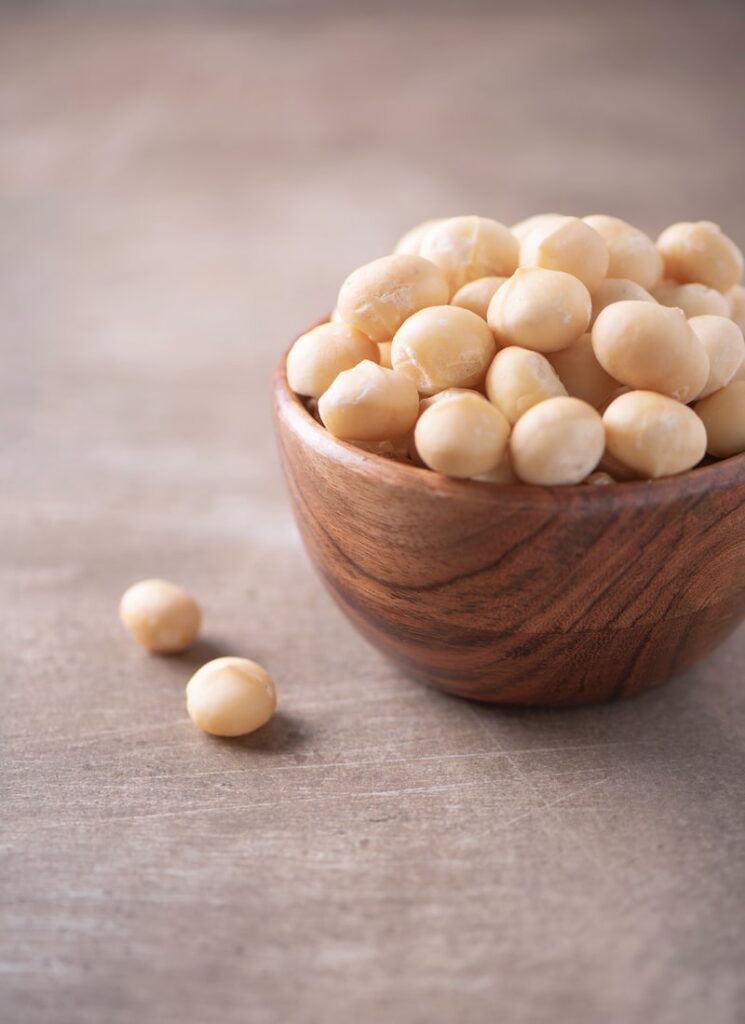
Fun fact about Macadamia nuts
- The U.S. is the largest consumer (51%) with Japan following at 15%
- September 4th is National Macadamia Nut Day.
2. Walnuts – One of the best nuts for a keto diet
Walnuts – top nut for heart-healthy high-quality antioxidants. Research indicates that eating 1–2 ounces (28–57g) of walnuts daily, may improve brain function, decrease the risk or progression of Parkinson’s disease, stroke, and depression as well as preventing heart disease and type 2 diabetes.
Nutrition: Walnuts per 100g
- Calories 654
- Total Fat 65g
- Saturated Fat 6.1g
- Polyunsaturated Fat 47g
- Monounsaturated Fat 8.9g
- Potassium 441mg
- Total Carbohydrates 14g
- Dietary Fiber 6.7g
- Protein 15g
- Calcium 7.5%
- Iron 16%
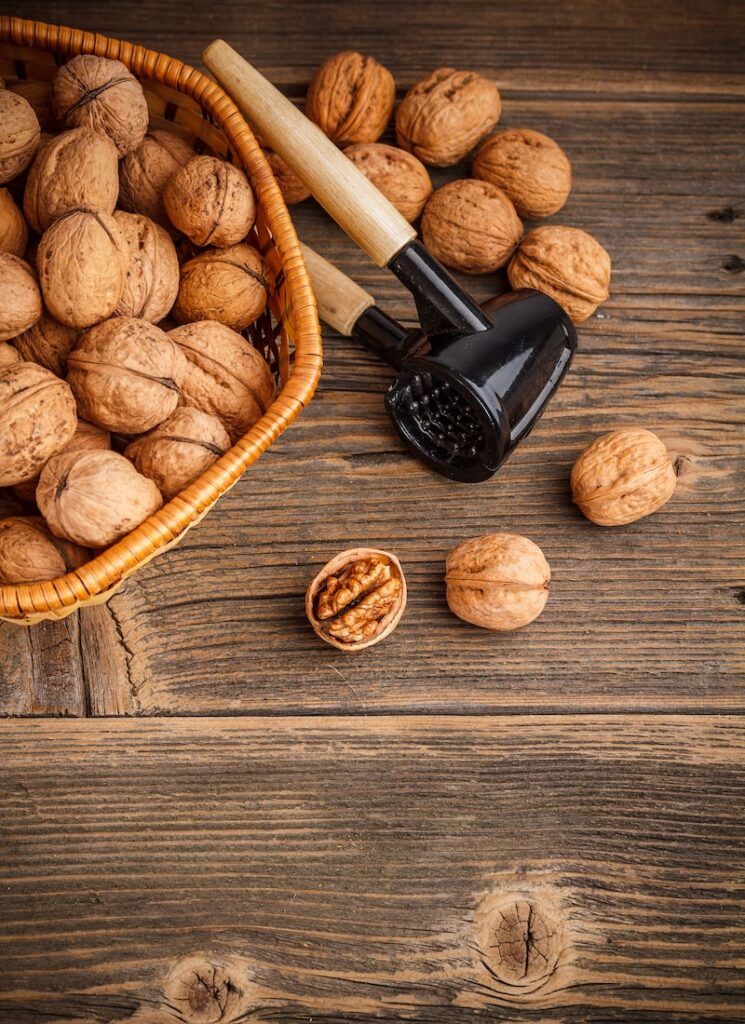
Fun fact about Walnuts
- Walnut is botanically classified as a fruit, but it is technically considered a tree nut.
- Walnut trees can be tall and can produce walnuts for more than 100 years.
3. Pecans – Good nuts for keto
Pecans – are rich in monounsaturated fat. This research shows that incorporating pecans into a diet can significantly lower LDL cholesterol levels and may be recommended as part of the prescribed cholesterol-lowering diet for patients or habitual diets of healthy individuals.
Nutrition: Pecans per 100g
- Calories 691
- Total Fat 72g
- Saturated Fat 6.2g
- Polyunsaturated Fat 22g
- Monounsaturated Fat 41g
- Potassium 410mg
- Total Carbohydrates 14g
- Dietary Fiber 9.6g
- Protein 9.2g
- Calcium 5.4%
- Iron 14%

Fun fact about Pecans
- The only major tree nut that grows naturally in North America – 80% of the world’s pecan crop comes from the United States.
- Pecan trees can live to be over 200 years old.
4. Brazil Nuts – Lowest carb nuts, high in Selenium
Brazil nuts – are the richest dietary sources of selenium. Selenium is an essential mineral that plays a vital role in reproduction, metabolism, thyroid gland function, DNA production, immune health and in hormone production.
Brazil nuts contain very high amounts of selenium (68–91 mcg per nut). Although there is a healthy amount of Selenium in Brazil nuts it could cause severe health problems if overdosed on them. The daily upper limit for adults is 400 micrograms.
Eating Brazil nuts may help reduce inflammation associated with chronic conditions. People with chronic kidney disease were given a Brazil nut per day, for 3 months, and the researchers noticed a reduction in inflammation and markers of oxidative stress.
Nutrition: Brazil Nuts per 100g
- Calories 659
- Total Fat 67g
- Saturated Fat 16g
- Polyunsaturated Fat 24g
- Monounsaturated Fat 24g
- Potassium 659mg
- Total Carbohydrates 12g
- Dietary Fiber 7.5g
- Calcium 12%
- Iron 14%

Fun facts about Brazil nuts
- Brazil nut pods contain 10 to 25 seeds
- Brazil nuts grow on the largest trees in the Amazon rainforest, which can grow up to 50 meters
5. Hazelnuts – In moderation
Hazelnuts – eating a hazelnut-rich diet may lower the risk of heart problems, as found in studies in 2013. Whereas other studies found hazelnut-rich diet may play an important role in reducing the susceptibility of LDL to oxidation.
Nutrition: Hazelnuts per 100g
- Calories 646
- Total Fat 62g
- Saturated Fat 4.5g
- Polyunsaturated Fat 8.5g
- Monounsaturated Fat 47g
- Potassium 755mg
- Total Carbohydrates 18g
- Dietary Fiber 9.4g
- Protein 15g
- Vitamin C 6.3%
- Calcium 9.5%
- Iron 24%
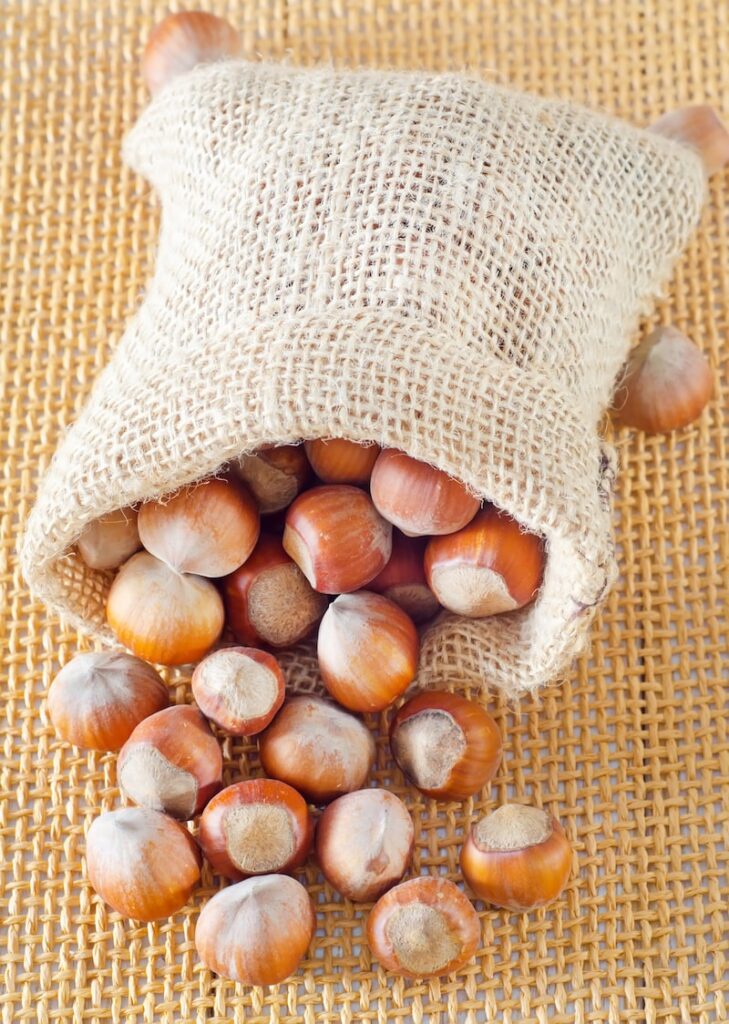
Fun facts about Hazelnuts
- Contain the highest Folate content than any other nuts. A 100-gram serving of hazelnuts contains 28% of the daily recommended value
- Hazelnut trees can produce until over 80 years of age.



6. Almonds – Good for toppings, not as a snack
Almonds are rich in fibre, unsaturated fats, and polyphenols, all nutrients that can favourably change our gut microbiome. Research suggests that almonds are a great food source for our gut bacteria.
This study found that students who were snacking on almonds for eight weeks experienced a positive change in the composition of the gut microbiome. They noticed an increase in the diversity of bacteria that were linked to positive outcomes such as cholesterol regulation, insulin function, weight management and anti-inflammation whereas the number of pathogenic bacteria decreased. The research states that an increase in the diversity of bacteria could be due to the fibre, monounsaturated fat, and polyphenol content of almonds.
For Keto, we need to limit this nut to a minimum.
Nutrition: Almonds per 100g
- Calories 598
- Total Fat 53g
- Saturated Fat 4.1g
- Polyunsaturated Fat 13g
- Monounsaturated Fat 33g
- Sodium 498mg
- Potassium 713mg
- Total Carbohydrates 21g
- Dietary Fiber 11g
- Protein 21g
- Calcium 21g
- Iron 21

Fun facts about Almonds
- Almond flour makes a great gluten-free alternative to wheat flour and can be used for Keto diets.
- The pollination of California’s almonds is the largest annual managed pollination event in the world.



7. Pine Nuts – Good nuts for keto
Pine nuts are rich in antioxidants that may help protect cells from damage, and improve vision, immunity, and skin and hair health.
Pine nuts are great for weight management. Thanks to their fatty acid contents such as pinolenic acid, help suppress appetite and go for longer without feeling hungry. A study shows the impressive pine nuts’ appetite-suppressing property helps decrease the rate of food intake by 37%.
Furthermore, Type 2 diabetes patients who had a nut-rich diet mixed, unsalted, raw, or dry-roasted showed improved blood glucose control and a reduction in bad cholesterol levels without gaining weight.
Nutrition: Pine Nuts per 100g
- Calories 673
- Total Fat 68g
- Saturated Fat 4.9g
- Polyunsaturated Fat 34g
- Monounsaturated Fat 19g
- Potassium 597mg
- Total Carbohydrates 13g
- Dietary Fiber 3.7g
- Iron 31%

Fun facts about Pine nuts
- It can take up to 25 years for pine trees to start producing edible pine nuts and significantly longer for production to reach its peak.
- The pineal gland in the brain is named after pinecones because of its shape.
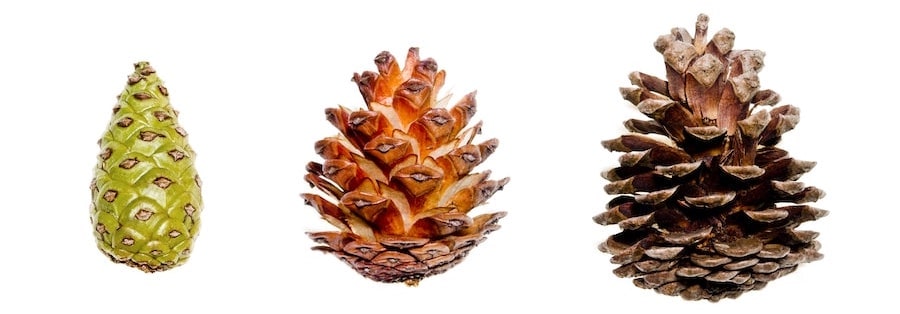
8. Pistachios – Not the best nuts for keto – Enjoy in very small quantities
Pistachios – studies found that eating pistachios daily serving of 1.5 oz (42.5g), helps with weight loss, and reduction of BMI (Body Mass Index Calculator) and waist circumference in overweight, obese men and women. The research also found that eating nuts can help with reducing blood pressure, particularly, consuming pistachios showed the strongest effect on reducing blood pressure.
Nutrition: Pistachios per 100g
- Calories 569
- Total Fat 46g
- Saturated Fat 5.6g
- Polyunsaturated Fat 13g
- Monounsaturated Fat 25g
- Sodium 428mg
- Potassium 1007mg
- Total Carbohydrates 28g
- Dietary Fiber 10g
- Protein 21g
- Vitamin A 5.3%
- Vitamin C 5%
- Calcium 8.2%
- Iron 22%

Fun facts about Pistachios
- They’re one of the lowest-fat, lowest-calorie and highest-protein tree nuts.
- Pistachios are one of the oldest flowering trees in the world and they’re related to mangoes!
9. Peanuts – In very low quantity
An international team of researchers conducted research relating to peanuts’ health benefits. The study found that 200,000 people in vastly different locations around the world who ate peanuts regularly in their diet along with other nuts were less likely to die from heart diseases compared to those who rarely ate nuts. This evidence was also backed up by Harvard-led investigations.
Scientists have discovered a powerful anti-oxidant called resveratrol in the skin of red grapes and peanuts. The compound protects cells against damage, contributes to cardiovascular health by reducing “bad” LDL, may have anti-cancer properties and helps prevent age-related mental decline.
Nutrition: Peanuts per 100g
- Calories 590
- Total Fat 50g
- Saturated Fat 8g
- Polyunsaturated Fat 10g
- Monounsaturated Fat 26g
- Sodium 410mg
- Potassium 630mg
- Total Carbohydrates 21g
- Dietary Fiber 8g
- Protein 24g
- Calcium 4%
- Iron 9%

Fun facts about Peanuts
- Peanuts are not really nuts, they’re legumes. Unlike nuts that grow on trees, peanuts grow underground.
- Peanut products are used to treat malnutrition in emergency situations and even save lives.
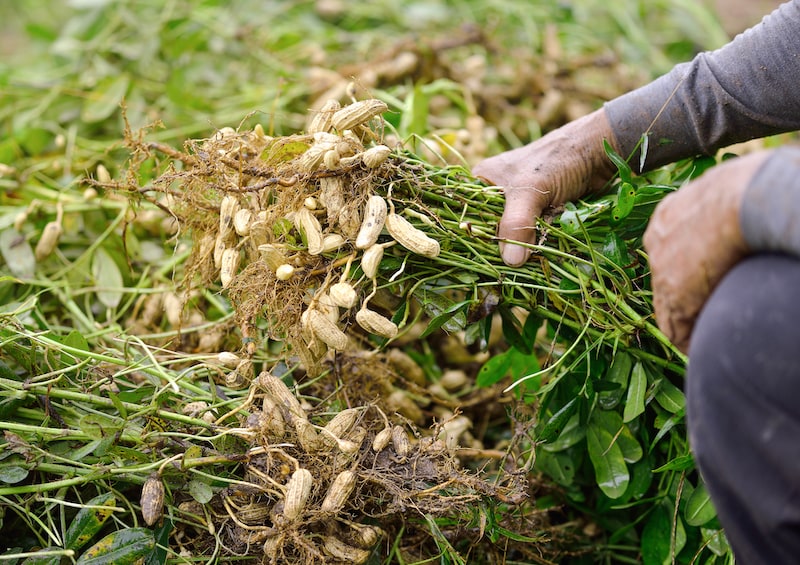
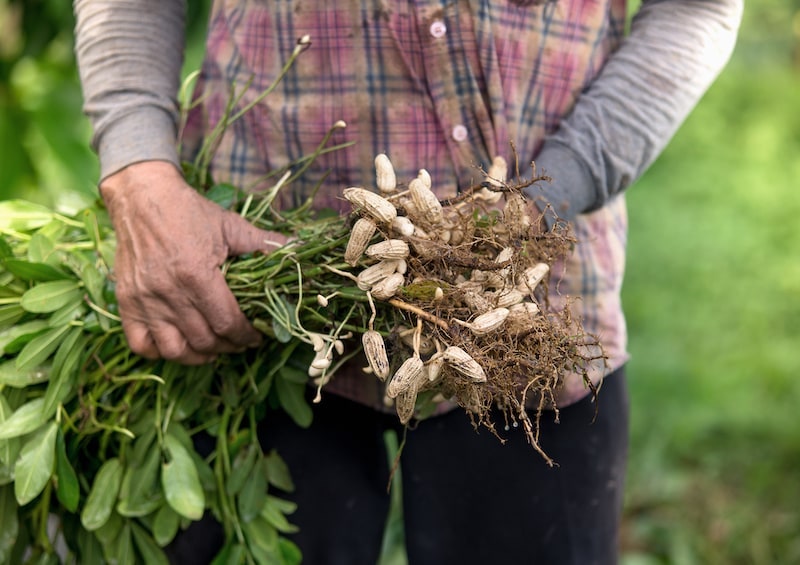
Good nuts for keto are those that are high in healthy fats, like macadamia nuts, walnuts and pecans. These types of nuts can help you stay satiated while on a diet, and they may help you lose weight by providing more energy and reducing cravings.
Additionally, they’re a good source of vitamins and minerals such as magnesium, potassium, zinc, copper and B-vitamins. Just be mindful some of these nuts contain higher levels of carbs than others and should be consumed in moderation.
What nuts to avoid on a keto diet
Cashews are loaded with carbohydrates, 100g of cashew contains 33g of carbs compared to macadamia, walnuts, Brazil and pecans. They are also low on fats which aren’t the ideal choice for the keto diet. The daily keto limit of net carbs is approximately 20-30 grams.
No doubt, cashew nuts are very tasty and it’s very easy to go over the limit of your daily intake of carbohydrates. Around 60 cashew nuts are more than enough to completely go over the daily limit.
Nutrition: Cashew Nuts per 100g
- Calories 574
- Total Fat 46g
- Saturated Fat 9.2g
- Polyunsaturated Fat 7.8g
- Monounsaturated Fat 27g
- Sodium 640mg
- Potassium 565mg
- Total Carbohydrates 33g
- Dietary Fiber 3g
- Calcium 3.5%
- Iron 33%

Fun facts about Cashews
- Before deshelling Cashews, they must be treated by boiling and roasting because they are surrounded by a toxic oil that can be harmful to the skin.
- The shell of the nuts can be used in lubricants and waterproofing.
The health benefits of eating a keto diet
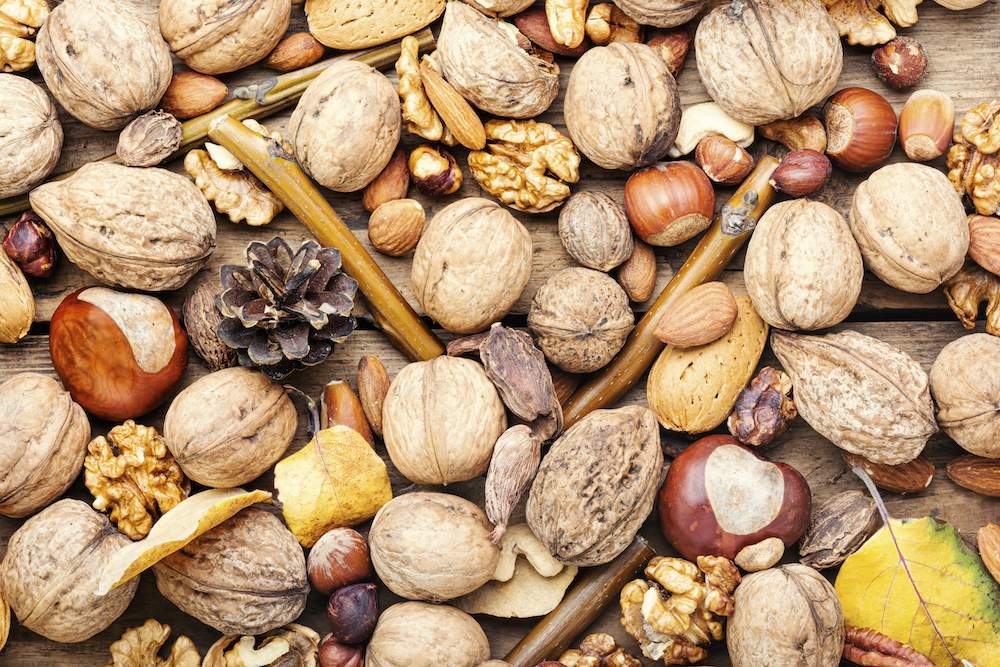
When it comes to eating healthy, there are a few things that always come to mind: eating whole foods, avoiding processed foods, and getting plenty of exercises. But what about keto?
A keto diet is a low-carbohydrate, high-fat diet that has been shown to have many health benefits. One of the most important of these is that it can help you lose weight by promoting a healthy balance of macronutrients. Food high in healthy fat and low in carbohydrates, help to control sugar levels without spiking it.
One of the main sources of macronutrients in the keto diet is nuts. Nuts are a great source of healthy fats and protein, and they are also low in carbs. This makes them a great option for people on the keto diet. They are also a good source of vitamins, minerals, and antioxidants. In addition, nuts are a good source of fibre, which can help you feel fuller and longer and reduce your risk of heart disease.
There are many different types of nuts, so it is easy to find something that you like to eat on the keto diet. Some popular options include almonds, macadamia nuts, hazelnuts, and pistachios. It is important to remember that not all nuts are keto-friendly. Some, like peanuts, pistachios and almonds are high in carbs and should be eaten in a small amount in your keto diet. It is also important to be aware of the number of calories that each type of nut contains.
Some nuts, like macadamia, walnuts, pecans, Brazil, hazelnut and pine nuts contain a lot of calories but few carbs. Others, like pistachios, contain a lot of carbs but few calories. It is important to read the labels on nut products to make sure that you are getting the right amount of nutrients and calories for your keto diet goals.
Try to purchase types of nuts separately instead of mixed nuts. Prepackaged mixed nuts usually contain an unhealthy ratio often high in cheaper varieties of nuts such as peanuts. They also often contain salt and other additives.
Find out about other articles relating to a keto diet
Is a vegan keto diet good for you? What foods to eat
6 Reasons You Need Avocado In Your Life
How to make sure you’re getting enough fat on the keto diet

Why fat is essential on the keto diet
When you’re on a keto diet, it’s important to make sure you’re getting enough fat. Not only does fat provide many of the same health benefits as other macronutrients, but it also helps to keep your blood sugar levels stable and your mood elevated. In addition, fat is essential for satiating hunger pangs and providing energy throughout the day.
To make sure you’re getting the right kind of fat, aim to include a variety of healthy fats in your meals and snacks. Some good options include nuts, seeds, avocados and olives. If you find that you’re struggling to get enough fat in your diet, consider adding a keto-friendly supplement to help boost your intake.
How to make sure you’re getting enough fats
One of the most important things you can do to ensure a successful keto diet is to make sure you’re getting enough fat. In order to stay in ketosis, your body needs between 65 and 80 per cent of your daily calories from fat. It’s also important to make sure that the fats you consume are healthy.
To get the most out of your keto diet, aim for around 60-70 per cent of your daily calories from total fat (including both saturated and unsaturated). You can find healthy sources of fat on the keto diet in nuts, avocados, olives, seeds such as chia, hemp and flaxseeds, and nut butter like those made with peanuts, almonds, hazel and pine.
Keep in mind that not all fats are created equal. Some fats are more keto-friendly than others. Monounsaturated fats, such as those found in nuts and olive oil, are particularly beneficial because they help to keep your blood sugar stable and can help you lose weight. Polyunsaturated fats, such as those found in vegetable oils, can also be helpful, but should be limited because they can increase your risk of heart disease.
If you’re having trouble sticking to a keto diet, make sure to talk to your doctor or nutritionist about how you can tweak your diet to make it more successful.
Tips for staying on track with your keto diet
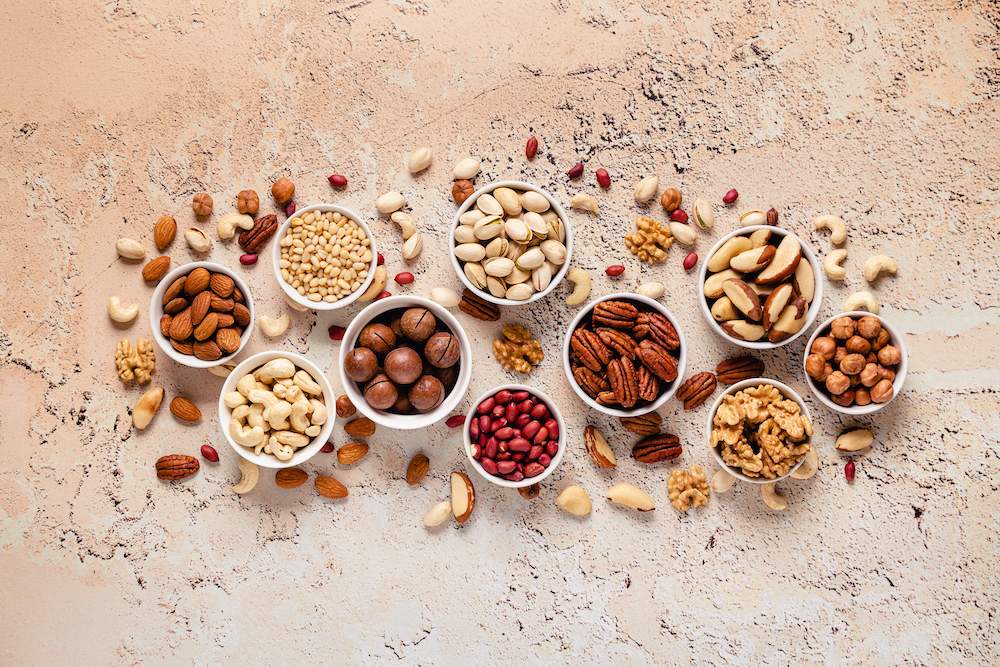
Some keto dieters find it challenging to incorporate enough healthy fat into their meals. Here are some tips for staying on track:
First and foremost, make sure you’re consuming a good number of macros – protein, carbs and healthy fats. When you break your macronutrients down this way, it’ll be much easier to stay within your calorie limit and still enjoy satisfying foods.
Second, try incorporating nuts into your meals as they offer a host of nutritional benefits that can help achieve your goals.
Third, keep an eye on portion sizes! Highly processed food is not going to do the trick when it comes to reaching ketosis, so focus more on high-quality and healthy proteins instead.
Lastly, make sure to drink plenty of fluids throughout the day – both plain water and unsweetened beverages like herbal or green teas are great choices.
If you’re looking for a nutritious way to add healthy fats to your keto diet, look no further than nuts, seeds and avocados! Nuts are a great source of energy and nutrients, and they can help keep you feeling full longer. There are many different types of nuts to choose from, so you can find one that fits your taste and dietary needs. Just be sure to watch your portion sizes, as some nuts are high in carbs. And as always, leave a comment below if you have any questions or tips for staying on track with your keto diet!
Sources:
https://www.nutritionvalue.org/Nuts%2C_hazelnuts_or_filberts_nutritional_value.html?size=100+g
https://academic.oup.com/jn/article/131/9/2275/4687699
https://www.sciencedaily.com/releases/2011/07/110712094201.htm
https://www.nhs.uk/live-well/healthy-weight/bmi-calculator/
https://pubmed.ncbi.nlm.nih.gov/22665124/
https://www.health.harvard.edu/blog/peanuts-linked-heart-longevity-benefits-pricey-nuts-201503057777
MIND Diet Associated with Reduced Incidence of Alzheimer’s Disease
https://www.ncbi.nlm.nih.gov/pmc/articles/PMC4532650/


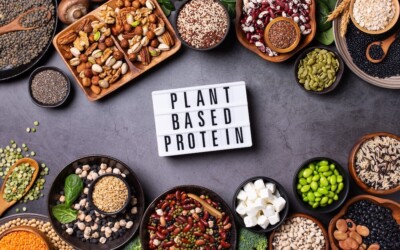








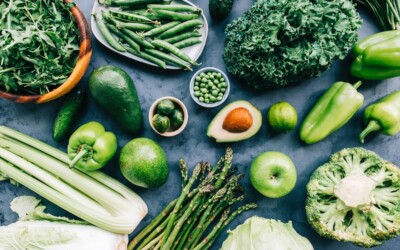



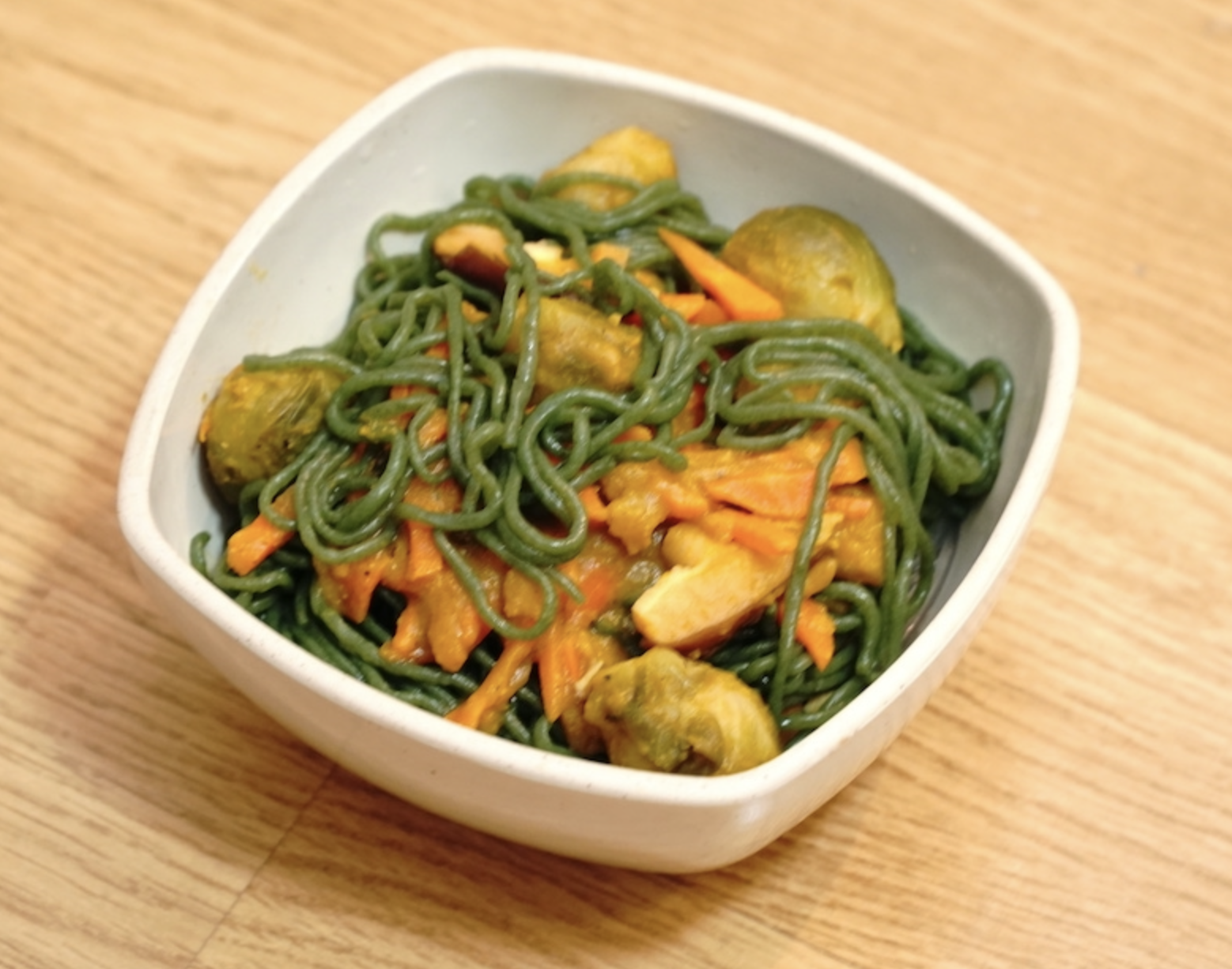
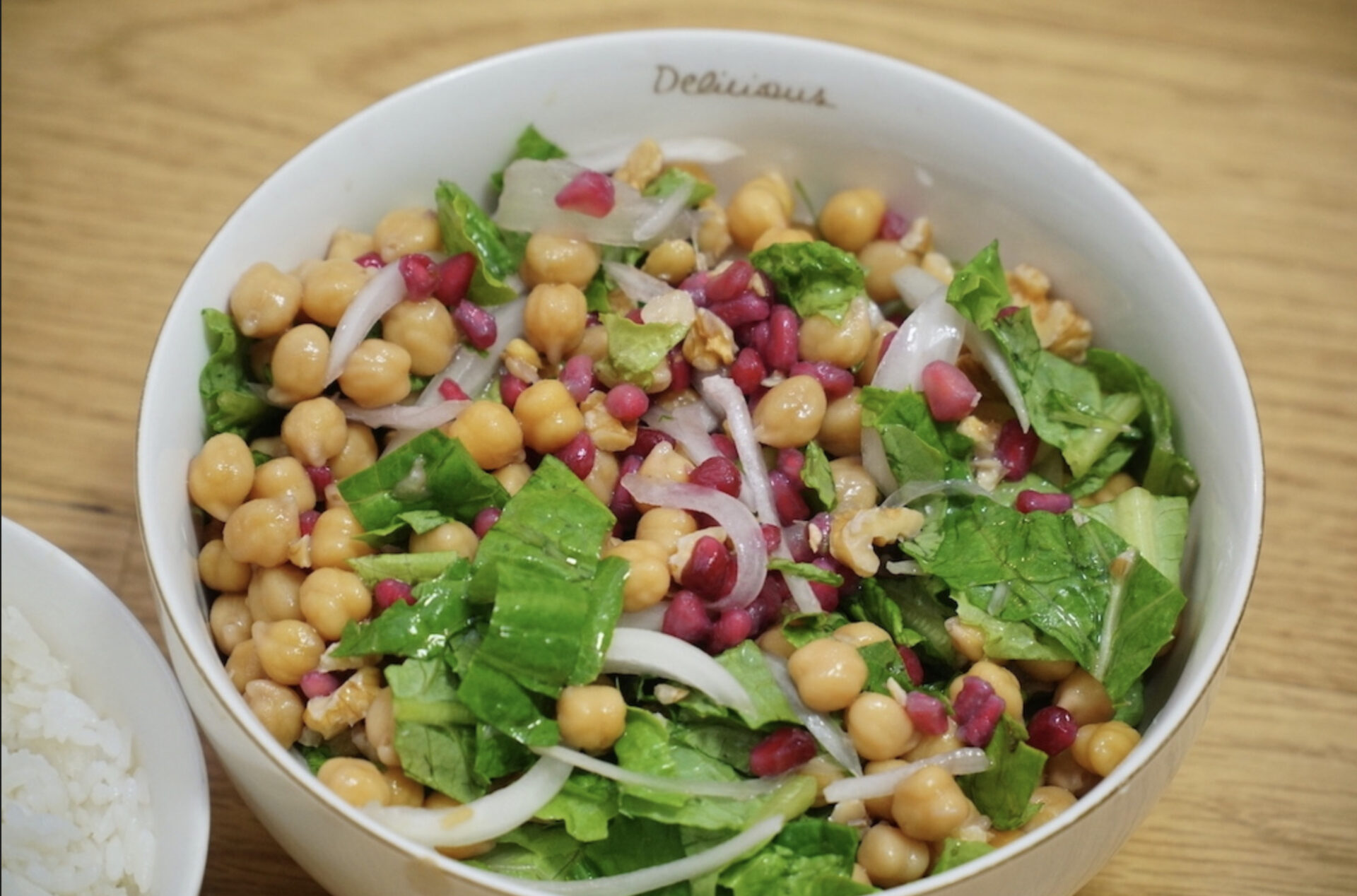
0 Comments